 W
WRecurrent series of notable public lectures are presented in various countries.
 W
WFrancis Trevelyan Buckland, better known as Frank Buckland, was an English surgeon, zoologist, natural historian, prolific writer, campaigner against river pollution, and researcher on fish-culture and fish farming.
 W
WThe Charles Proteus Steinmetz Memorial Lecture is a series of academic lectures initiated in 1925 in honor of celebrated mathematician and electrical engineer Charles Proteus Steinmetz. To date seventy four addresses have been given on subjects ranging from peace and educational reform to nanotechnology and solar photovoltaics.
 W
WThe Dingwall Beloe Lecture Series is the result of bequests by Dr Eric Dingwall, formerly an Assistant Keeper of Printed Books in the British Museum, and to the Clockmakers Company by Reginald Beloe TD, the noted horological collector and Master of the Company in 1977.
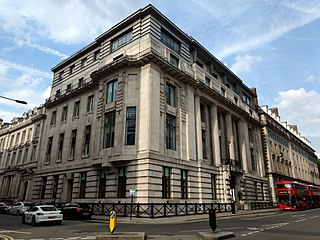 W
WThe Edwin Stevens Lecture, also known as the Edwin Stevens Lecture for the Laity or Stevens Lecture, are a series of lectures founded and named for Arthur Edwin Stevens in 1970. Stevens was a successful entrepreneur and member of the library section of the Royal Society of Medicine (RSM), London, where the lecture is held every year. In 1967, a committee to discuss "lectures for the laity" was formed. In 1970, at the request of the then president of the History of Medicine Society, Sir Terence Cawthorne, Stevens donated £2,000 a year for the first three years, as a trial. The lectures became successful and Stevens donated a further £50,000 in 1973 and made the lecture series permanent.
 W
WThe Fitzpatrick Lecture is given annually at the Royal College of Physicians on a subject related to history of medicine. The lecturer, who must be a fellow of the College, is selected by the president and may be chosen to speak for two years successively. The lectures are supported by funds from the Fitzpatrick Trust which was established in 1901 by Agnes Letitia Fitzpatrick with a £2,000 donation in memory of her physician husband Thomas Fitzpatrick. Agnes was influenced by her husband’s close friend, Sir Norman Moore, who persuaded her to choose ‘’history of medicine’’ as a subject. Subsequently, Moore was credited with its idea and implementation.
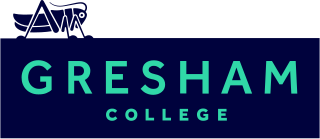 W
WGresham College is an institution of higher learning located at Barnard's Inn Hall off Holborn in Central London, England. It does not enroll students or award degrees. It was founded in 1597 under the will of Sir Thomas Gresham, and hosts over 140 free public lectures every year. Since 2001, all lectures have also been made available online.
 W
WThe Kahn Lectures were series of lectures that took place from 1929 to 1931 at the Department of Art and Archaeology of Princeton University, sponsored by the New York banker Otto Hermann Kahn (1867–1934). Kahn had funded visits by European scholars to Princeton since 1925, and the new lectures were announced as a continuation of the earlier ones.
 W
WThe LaFontaine-Baldwin Symposium is a Canadian forum created through the joint effort of John Ralston Saul and the Dominion Institute. Founded in 2000, the Symposium's purpose is to stimulate debate about the historical antecedents and future shape of the Canadian democracy. Canada's existence and democratic foundation owes a great deal to the partnership of two 19th century political visionaries, Louis-Hippolyte LaFontaine and Robert Baldwin, the first democratically elected Joint Premiers of the Province of Canada. The Symposium's annual venue honours these two great political reformers.
 W
WThe Alfred M. Landon Lecture Series is a series of speeches on current public affairs, which is organized and hosted by Kansas State University in Manhattan, Kansas. It is named after Kansas politician Alf Landon, former Governor of Kansas and Republican presidential candidate. The first lecture in the series was given by Landon on December 13, 1966.
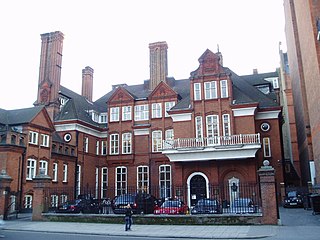 W
WThe Dive Lectures are a series of public lectures that have been hosted at the Royal Geographical Society in London every year since 2005 as part of an ongoing programme of events by the Society and the London Diving Chamber to promote exploration and adventure sports. Featuring keynote presentations by well-known figures in diving, television, exploration, photography and environmentalism, the lectures have developed into a well-attended social and professional forum for the British scuba industry as well as a popular fund-raising occasion for diving-related charities.
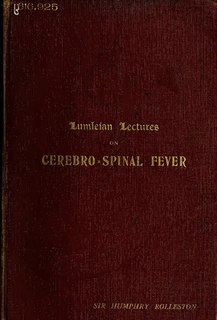 W
WThe Lumleian Lectures are a series of annual lectures started in 1582 by the Royal College of Physicians and currently run by the Lumleian Trust. The name commemorates John Lumley, 1st Baron Lumley, who with Richard Caldwell of the College endowed the lectures, initially confined to surgery, but now on general medicine. William Harvey did not announce his work on the circulation of the blood in the Lumleian Lecture for 1616 although he had some partial notes on the heart and blood which led to the discovery of the circulation ten years later. By that time ambitious plans for a full anatomy course based on weekly lectures had been scaled back to a lecture three times a year.
 W
WIan John Macfarlane, AC, is an Australian economist, and central banker. After an early career as an economist in Melbourne, Sydney, Oxford and Paris, he joined the Reserve Bank of Australia in 1979 and rose to become Governor from 1996 to 2006. After retiring from the Reserve Bank, he became a company director, economic consultant and author of two books.
 W
WThe Errol Solomon Meyers Memorial Lecture is an annual free public Lecture hosted by the University of Queensland Medical Society (UQMS) in Brisbane.
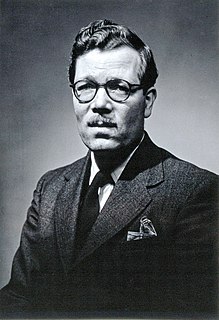 W
WThe Poynter Lecture is given every two years at the British Society for the History of Medicine in memory of Noël Poynter, past president of BSHM, who was Director of the Wellcome Institute for the History of Medicine from 1964 to 1973.
 W
WA public lecture is one means employed for educating the public in the arts and sciences. The Royal Institution has a long history of public lectures and demonstrations given by prominent experts in the field. In the 19th century, the popularity of the public lectures given by Sir Humphry Davy at the Royal Institution was so great that the volume of carriage traffic in Albemarle Street caused it to become the first one-way street in London. The Royal Institution's Christmas Lectures for young people are nowadays also shown on television. Alexander von Humboldt delivered a series of public lectures at the University of Berlin in the winter of 1827–1828, that formed the basis for his later work Kosmos.
 W
WThe Royal Institution Christmas Lectures are a series of lectures on a single topic each, which have been held at the Royal Institution in London each year since 1825, missing 1939–1942 because of the Second World War. The lectures present scientific subjects to a general audience, including young people, in an informative and entertaining manner. Michael Faraday initiated the Christmas Lecture series in 1825, at a time when organised education for young people was scarce. Faraday presented nineteen series of lectures in all.
 W
WThe Alice G. Smith Lecture, established in 1989, is sponsored by the University of South Florida, School of Information. The lecture is an annual recognition of a scholar or author whose achievements have been instrumental in the development of librarianship or information studies. The lecture series honors the memory of the School's first director, Alice Gullen Smith, known for her work with youth and bibliotherapy. The Lecture Fund was created with the purpose of memorializing the visionary work of Dr. Smith, who was central to the School's first accreditation by the American Library Association in 1975. Florida Library Association archivist, Bernadette Storck has provided an oral history of the development of libraries in Tampa, Florida that details the contributions of Dr. Smith including her establishment of the Tampa Book Fair that encouraged thousands of children to foster a love for books and reading
 W
WSwarthmore Lecture is one of a series of lectures, started in 1908, addressed to Britain Yearly Meeting of the Religious Society of Friends (Quakers).
 W
WThe Turing Talk, previously known as the Turing Lecture, is an annual award lecture delivered by a noted speaker on the subject of Computer Science. Sponsored and co-hosted by the Institution of Engineering and Technology (IET) and the British Computer Society, the talk has been delivered at different locations in the United Kingdom annually since 1999. Venues for the talk have included Savoy Place, the Royal Institution in London, Cardiff University, The University of Manchester, Belfast City Hall and the University of Glasgow. The main talk is preluded with an insight speaker, who performs an opening act to the main event.